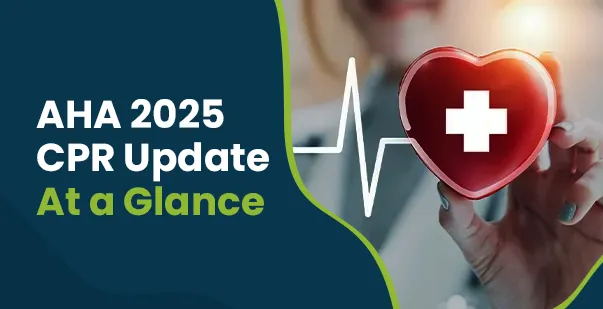In the world of tattoos creating stunning body art is a fascinating craft that demands precision and utmost care. However, beyond the creative process, there’s something essential every tattoo artist needs to know about: bloodborne pathogens. These are tiny germs that can be harmful, and knowing how to deal with them is crucial for both the artist and the person getting the tattoo. This article will explain how and why bloodborne pathogens training for tattoo artists holds importance and the impact of the training on the artists.
What are the Risks of Bloodborne Pathogens in Tattooing?
- Bloodborne pathogens can pass onto another person via blood transmission, infecting them further.
- Common bloodborne pathogens include HIV, Hepatitis B (HBV), and Hepatitis C (HCV).
- Without proper precautions, both the tattoo artist and the client are at risk of contracting these infections.
- Bloodborne pathogens can survive on surfaces, increasing the risk of transmission if equipment is not properly cleaned and sterilized.
- Infections caused by bloodborne pathogens can lead to long-term health complications and, in severe cases, can be life-threatening.
Understanding Bloodborne Pathogens
Bloodborne pathogens are like invisible enemies that live in our blood. They are small, but they can make people very sick if they’re not careful. The main diseases from the contact of bloodborne pathogens we worry about are HIV, Hepatitis B, and Hepatitis C.
These bloodborne pathogens survive on surfaces for a few days, so you need to clean everything efficiently. Thus, when one enrolls in a bloodborne pathogen certification course, they learn about it all at their own pace.
Are Tattoo Artists Legally Required to Receive Training?
In many places, it’s not just a good idea for tattoo artists to get bloodborne pathogen training – it’s the law! The people who make the rules, like health departments, say that all tattoo artists must learn about how to keep everyone safe from these germs. This is a way to make sure that tattooing is always done in a safe and healthy way.
Additionally, even tattoo artists can be at risk when working needles over the skin of different clients. They don’t know where the client is coming from and what kind of diseases or wounds they might already be suffering from.
However, the BBP certification course for tattoo artists makes a difference in teaching these artists to keep everyone safe and clean while creating their art and earning a living.
Legal Implications of Non-Compliance
If a tattoo artist doesn’t follow the rules about bloodborne pathogen training, there can be serious consequences. They might have to pay fines or even have their license taken away. In some cases, they might not be allowed to work in a tattoo parlor anymore. It’s a big deal because it’s all about keeping people safe.
Those who curate and design the bloodborne pathogen certification for tattoo artists are also aware of these legalities. Thus, the course content from a reputable course provider is always fun, interactive, and easy to learn. At least, the tattoo artists will not worry about getting in trouble because they didn’t learn the concepts of bloodborne pathogen training available at their disposal.
How Does Bloodborne Pathogen Training Prevent Infections?
Bloodborne pathogens training for tattoo artists certification teaches these artists all the essential ways to keep their workspace clean and safe. This includes making sure all the tools are clean, getting rid of used needles properly, and wearing medical equipment like gloves and masks.
The Role of Sterilization
Sterilization is a super important part of bloodborne pathogen training for tattoo artists. It means making sure that all the equipment, like needles and machines, are extremely clean. This gets rid of any possible germs, so they can’t make anyone sick.
What Impact Does Training Have on Tattoo Studio Reputation?
Besides being a legal rule, bloodborne pathogen training helps tattoo studios and parlors build a good reputation. When people know that a studio’s artists are well-trained in keeping things safe, they feel more comfortable getting a tattoo there. It shows that the studio owners care a lot about their customer’s health and safety.
Building Trust and Confidence
If you’re thinking about getting a tattoo, knowing that your artist is trained in bloodborne pathogens can give you a lot of confidence. It’s like knowing you’re in good hands, and it helps you trust the artist even more.
What Should Tattoo Artists Do in Case of Bloodborne Pathogen Exposure?
Accidents happen. No one can ignore these bloodborne accidents without prior expertise, even at tattoo parlors. However, you can be cautious and indulge in as many preventive measures as possible when you have the right knowledge and certification on bloodborne pathogens training.
Additionally, tattoo artists must be serious about cleaning the affected area of the victim and seek out medical help if there is a lot of bleeding. Make a report of the exact sequence of events and send it back to the advanced medical professionals for curing the patient at a faster rate.
Learning the bloodborne pathogens training equips and empowers tattoo artists to make swift decisions. They know how to handle such emergencies, clean the wound, calm the patient, and prevent the allergen or pathogen from spreading out. With their quick action, worst-case scenarios are easy to dodge until the medical team arrives at the infected scene.
Conclusion
Bloodborne pathogens training for tattoo artists is not just a legal requirement but a way to show that these artists care deeply about the health and safety of their clients. By following these essential rules, tattoo artists create a safe and enjoyable experience for everyone. If you are a tattoo artist or own a tattoo parlor, you too can enroll in a comprehensive and interactive bloodborne pathogen training today for free.









